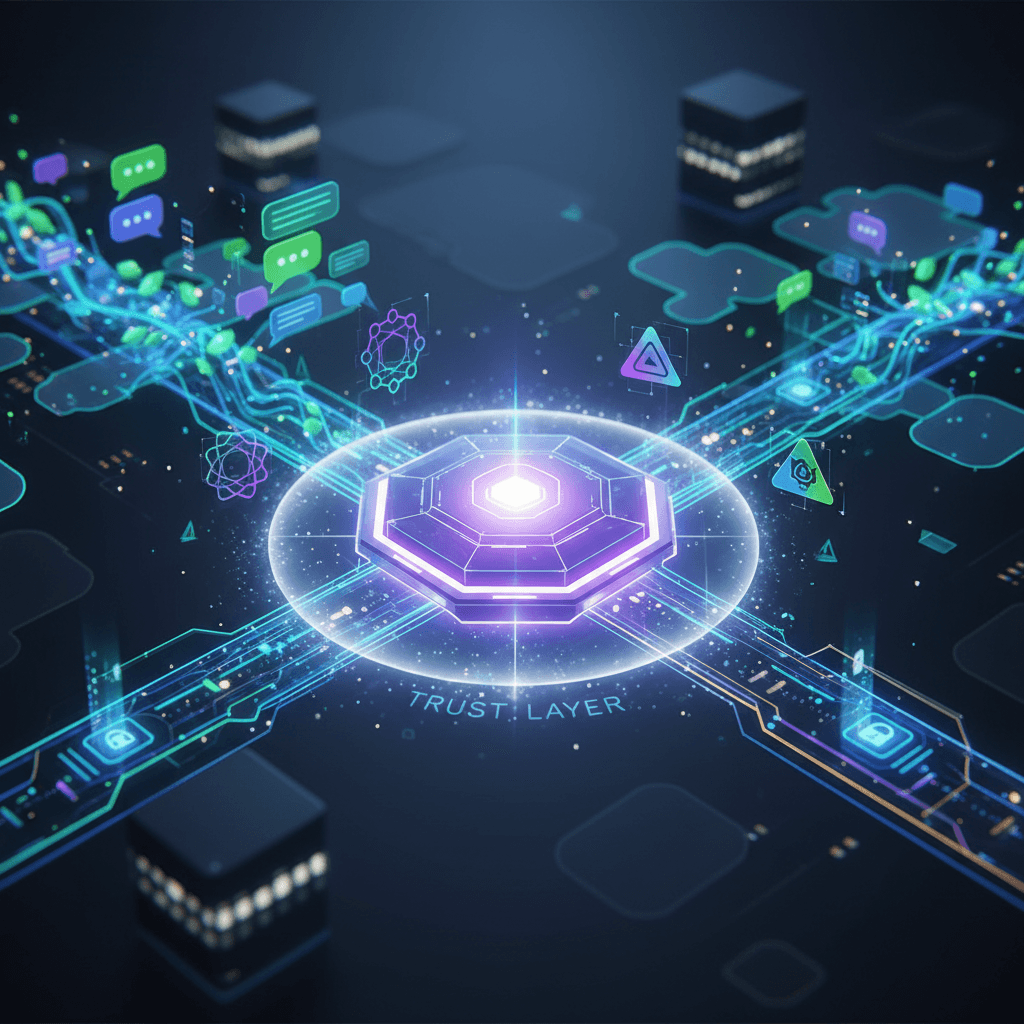Salesforce Builds Trusted Enterprise AI Hub With OpenAI, Anthropic Models
Salesforce unveils dual AI strategy with OpenAI and Anthropic, balancing broad reach with secure, regulated enterprise solutions.
October 15, 2025

Salesforce is significantly deepening its commitment to artificial intelligence by expanding major partnerships with two of the industry's leading model builders, OpenAI and Anthropic. The strategic collaborations, aimed at embedding the latest generative AI capabilities directly into the Salesforce ecosystem, signal a decisive move to provide enterprise customers with a flexible, multi-model approach to AI adoption. These enhanced integrations will see OpenAI's powerful GPT models and Anthropic's safety-focused Claude models become more accessible across Salesforce's suite of products, including its flagship Agentforce 360 platform, offering businesses more choice and power in how they deploy AI.[1][2] This strategy reinforces Salesforce's ambition to become a central and trusted hub for enterprise AI, allowing customers to leverage cutting-edge technology while addressing critical concerns around data security and industry-specific compliance.[3][2]
The expanded collaboration with OpenAI is set to bridge the gap between the world's most popular chatbot and the data-rich environment of enterprise CRM. A key feature of this partnership will allow Salesforce customers to access Agentforce 360 features and interact with their own company data directly from within the ChatGPT interface.[3][4] This integration means a user could query their sales records, build data visualizations in Tableau, and even develop custom AI agents without leaving ChatGPT.[1][3][2] Salesforce will integrate OpenAI's latest model, GPT-5, into the Agentforce platform, empowering businesses to build more sophisticated AI agents and prompts.[2][5] Furthermore, the partnership introduces a new "Agentforce Commerce" tool, which will enable merchants to sell products through ChatGPT’s Instant Checkout, creating a new conversational commerce channel while ensuring businesses retain control over their customer data and order fulfillment processes.[1][2] For Salesforce, this move is about embedding its tools into the "preferred surface environment" of millions, capitalizing on ChatGPT's massive user base to extend the reach of its platform.[3]
While the OpenAI partnership focuses on broad accessibility and new commercial channels, the deepened alliance with Anthropic is tailored to the specific, high-stakes needs of regulated industries.[1][2] Anthropic's Claude family of models will be made available to Salesforce customers in sectors such as financial services, healthcare, and cybersecurity, where data privacy and compliance are paramount.[3][2][6] In a significant move to address these security concerns, Anthropic is the first large language model provider to be fully integrated within Salesforce's trust layer, meaning all data traffic generated by Claude will be contained within Salesforce's secure virtual private cloud.[3][5] This provides an added layer of security and control for organizations handling sensitive information. The collaboration also involves a deeper integration of Claude into Slack, allowing enterprise teams to securely analyze documents, access internal data, and make decisions within their primary communication hub.[3][2][4] Salesforce and Anthropic also plan to co-develop industry-specific AI applications to meet the unique requirements of these regulated fields.[2]
Underpinning this dual-pronged strategy is Salesforce's foundational commitment to an open ecosystem and its robust Einstein Trust Layer. The company is deliberately avoiding reliance on a single AI provider, instead offering customers a "Bring Your Own Model" (BYOM) capability that allows them to use Salesforce's own models, those from partners like OpenAI and Anthropic, or even custom-built models.[7][8][9] This flexibility is crucial for enterprises that have already invested in their own data science capabilities or prefer specific models for different tasks.[10] The Einstein Trust Layer serves as the critical security architecture for all these integrations.[11][12] It is designed to allow companies to use generative AI without compromising their data by providing features like data masking to protect personally identifiable information (PII) and a zero-data retention policy, which ensures that customer data is not stored by third-party model providers.[10][11] Every AI interaction is monitored through a secure audit trail, giving companies the visibility and control needed to adopt AI responsibly.[11] This trust-centric approach is Salesforce's answer to the "trust gap" in AI, aiming to reassure customers concerned about the ethical and secure use of this powerful technology.[13]
These expanded partnerships are a cornerstone of Salesforce's broader strategy to lead the next wave of enterprise software, which it defines as agentic AI—where autonomous agents can execute complex tasks.[14] The move is not only a technological advancement but also a business imperative, as Salesforce seeks to drive greater adoption of its AI platforms and translate its significant investments into revenue growth.[4][6] The company's venture arm, Salesforce Ventures, has already committed $1 billion to AI innovators, including an investment in Anthropic, demonstrating a deep financial and strategic alignment with the ecosystem it is now integrating more closely.[15][16][17] By offering a choice of leading models from OpenAI and Anthropic, secured within a trusted framework, Salesforce is positioning itself as an indispensable platform for businesses looking to navigate the complexities of digital transformation. This strategy allows customers to balance innovation with compliance, ultimately aiming to make Salesforce the primary orchestrator of AI-driven productivity in the enterprise.[2][18]
Sources
[1]
[4]
[10]
[11]
[12]
[15]
[16]